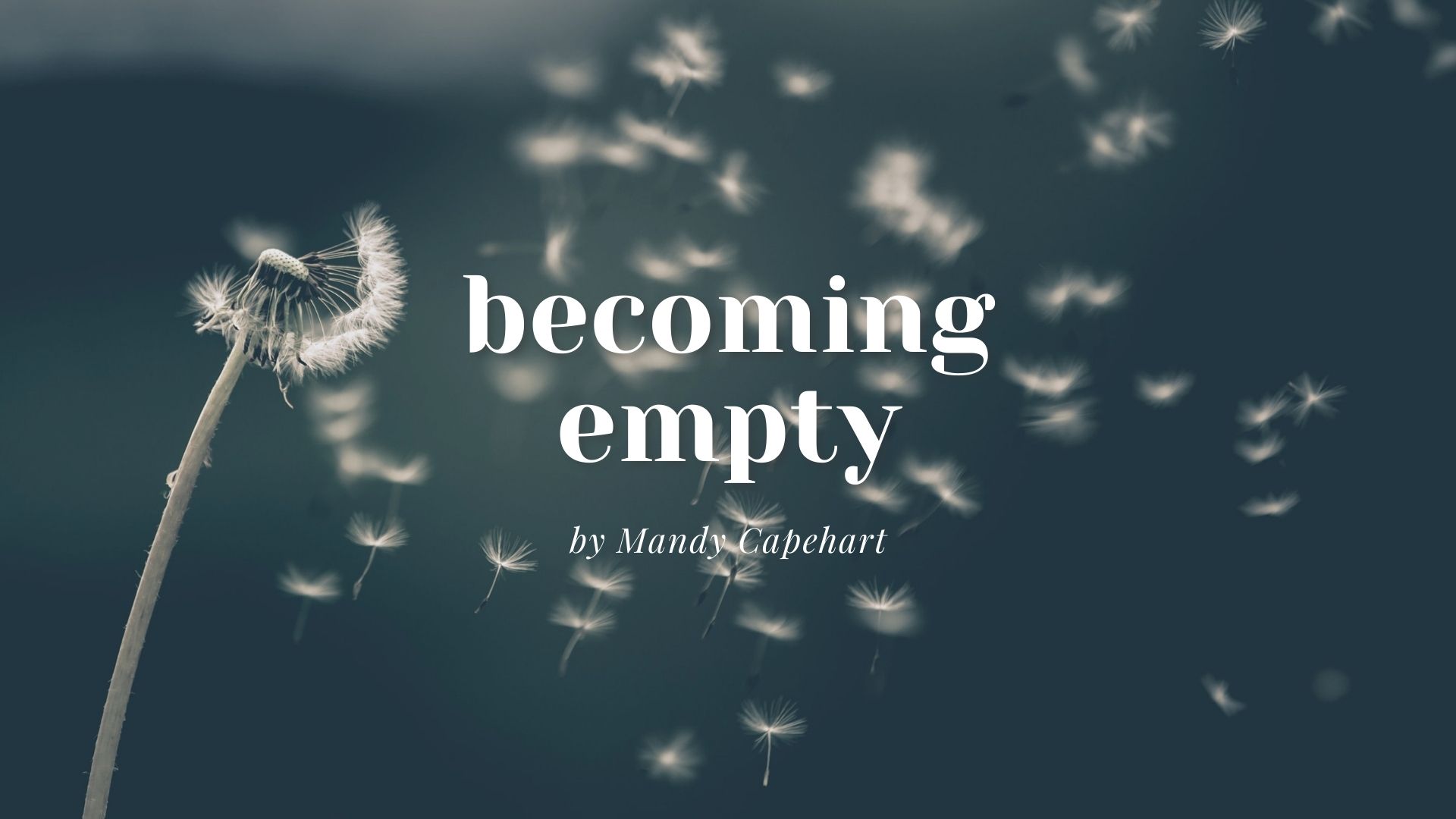
Becoming Empty
I love rising early, but there have been many times in this season of grief when sleep seems far too elusive to willingly surrender a few extra minutes. The value of rest cannot be overstated, because rest is rebellion against the constant stream of input and noise. But even in grief, the cultural emphasis to move on and grow is counter to what we really need: Time.
Becoming empty takes time. Time is not the source of healing, but how we spend our time matters. In his book “Soul Rest,” Curtis Zackery says this: “We can rest when we know it is up to Him to sustain us.” To become empty, we must trust that in the space of stillness and quiet, we will not go without. Read that one more time:
We can rest when we know it is up to Him to sustain us.
Finding Stillness
But before we dive into a monastic life, let’s define empty in a way that serves the intent of the word and creates sustainability for us as a practice. It is not reasonable to drop everything and run away, just as it is not reasonable to memorize theories on grief. In mindfulness practices with the experts, you will learn the goal is never to empty your mind of all thought, but to simply allow thoughts to pass without condemnation, returning your focus to your breath as often as needed.
My tendency in grief is to search for meaning by inhaling anything that will distract me from my pain. Do I really gain something useful from everything I read? Or am I simply keeping my mind distracted?
To become empty, I must become still. My mind, body, and spirit all deserve rest. Grief feels like an attacking army, sneaking through the barricades and ambushing my thoughts at the worst possible moment. Rest is my weapon. Stillness of mind means disconnecting or silencing all the inputs and focusing on my breath as an intentional act.
One of the best ways I’ve found to get my daughter to sleep at night is the reminder that her body needs stillness to recover from the day and heal her injuries. She hates the growing pains, but when she remembers they make her body longer and stronger, she gives into rest. We know sleep is where we gain restoration for our body and mind, but the torment of trying to sleep through grief can make late nights scrolling on screens so appealing.
Can we find a way to simplify the onslaught during our waking hours to become empty and gain much? If we were designed by God to receive all we need from Him, then sometimes we must refrain from gathering all our own supplies. He is able and waiting to create a new thing in us, even in loss.
Trying the New Thing
“And no one puts new wine into old wineskins. For the old skins would burst from the pressure, spilling the wine and ruining the skins. New wine is stored in new wineskins so that both are preserved.”
Matthew 9:17
Our friend Jesus reminded us in this statement from Matthew that only an empty vessel can be filled. Imagine a full glass of water being filled to overflow. Is that satisfying or overwhelming? If you’re carrying grief like me, the spill is now one more task to handle. Too much goodness is not sustainable – because saturation prevents absorption.
It is time to make a list of all the inputs from which you receive “encouragement.” People in your life, podcasts, books, events…
be diligent to include them all.
Now, give yourself permission to silence most of these resources. They’re not useless, but if the idea of listening or reading to one more source of “encouragement” increases anxiety or a sense of duty/loyalty, then you are only going to receive noise from those sources.
A Practice in Breath Work
Becoming empty means releasing noise and making room for rest and deep, intentional breath. Where you may normally reach for a book, reach for completely empty lungs instead – and then refill them to capacity by inhaling through your nose.
This can be where alternate nostril breathing becomes an accessible and quickly available tool (unless you’re congested or sick).
To practice alternate nostril breathing:
- Get comfortable! Exhale completely, then use your right thumb to close your right nostril. Each breath should be slow enough that you’re feeling your diaphragm (belly) expand and not becoming dizzy or disoriented.
- Inhale through your left nostril and then gently pinch your left nostril closed. Open the right nostril and exhale through this side. Inhale again through the right nostril and then close this nostril.
- Open the left nostril and exhale through the left side.
This is one cycle. You will find better results from this practice with regular sessions, up to five minutes at a time. Balance matters: Always complete your breathing session by exhaling through the left nostril.
We must practice our breath work and exhale the cacophony of inputs because we are in a new season. The resources we’ve always held tight no longer serve. We need the new wineskin we’ve been promised. It is a mark of our genius to rest, breathe, exhale, and accept it as a gift.
This article is an excerpt from Mandy’s book, Restorative Grief: Embracing our losses without losing ourselves. This 31 day guidebook on grief is available in the lobby bookstore at Living Waters or on Amazon now.





Responses